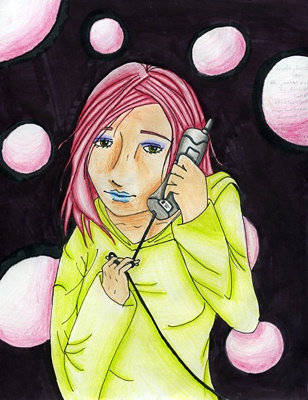All Nonfiction
- Bullying
- Books
- Academic
- Author Interviews
- Celebrity interviews
- College Articles
- College Essays
- Educator of the Year
- Heroes
- Interviews
- Memoir
- Personal Experience
- Sports
- Travel & Culture
All Opinions
- Bullying
- Current Events / Politics
- Discrimination
- Drugs / Alcohol / Smoking
- Entertainment / Celebrities
- Environment
- Love / Relationships
- Movies / Music / TV
- Pop Culture / Trends
- School / College
- Social Issues / Civics
- Spirituality / Religion
- Sports / Hobbies
All Hot Topics
- Bullying
- Community Service
- Environment
- Health
- Letters to the Editor
- Pride & Prejudice
- What Matters
- Back
Summer Guide
- Program Links
- Program Reviews
- Back
College Guide
- College Links
- College Reviews
- College Essays
- College Articles
- Back
Millennials: We Are Simpler Than You Think
I am a millennial. To some, my generation is going to change the world, and to others, we are going to destroy it. I am frustrated by the way people write about us; specifically, how older generations of journalists write about us. To them, we may as well be extraterrestrials. They act as if they need an instruction manual guiding them on how to talk to us. The endless confusion on how to raise a millennial while simultaneously instilling the values of older generations has created a vicious cycle of my generation being misrepresented. Members of older generations do not realize what an asset we can be in a changing world. We are a lot simpler than they think we are.
The issue I am confronted with the most about millennials is the issue of social media. We constantly hear about the horrors of social media’s inherent cyberbullying and peer pressure, both of which do happen, but we can’t let one innovation stereotype an entire generation. The advent of social media has created a lot of stability among millennials. It connects people-- with a predicted 3 billion users by 2020, social media is uniting us across the world like never before. It is a lifeline and support system for people who don’t have the support from their local community. Maybe it’s a genius in a small village in China, or a gay teen in a conservative small town, or a kid who’s bullied at school. These people can find friends, support, and encouragement on social media.
What’s more, people are now making a living off of posting on Instagram or creating sponsored posts and videos on other platforms. Social media has become a thriving industry that employs people all over the world, and the best part is, we are good at it. Since social media has become such a large part of our daily lives, we have grown accustomed to it, and many have become experts at it. Even I, who struggles to navigate the extensive internet, often find myself playing the teacher when it comes to educating others about social media. Whether we believe it or not, our society is dependent on social media as advertising in an irreversible way. It’s because of this that millennials are such an asset to our society and will continue to be for years to come.
Another striking element about the way older generations write about millennials is that we are condemned for our activism. Millennials have enacted a lot of change in our society through our steps toward creating more inclusivity. Millennials have been the leaders of large movements, like the Black Lives Matter and #MeToo Campaigns. Although our perseverance may come across as whining or complaining to older generations, we are setting the foundation for a more inclusive society, one that distinguishes itself from the more segregated society in which they grew up. I understand why older generations are shocked by our actions, but they need to take the time to educate themselves on how the changes we are making can be positive before they condemn them. Seeking improvement isn’t a judgment or condemnation of past generations; it’s an effort to build on what they knew and improve the future.
I have a blog called My Perspective in which I provide parents with insight on my generation - what we like to wear, what societal pressures we fall victim to, what’s happening at school, etc. I write about these specific topics to spark a conversation not only between older generations but between parents and children and even grandparents and grandchildren in order to help them better understand each other. What I learned from my experience with this blog is that the frustration I feel with older generations can be solved by communicating. Some of the largest gaps in our society have been filled by communicating and learning other people’s stories and opinions. Maybe that is the biggest lesson of social media: it’s a constant Marketplace of Ideas that make us see the perspective of others and maybe, if we’re willing, become more empathetic and aware. Conflict is okay, as long as steps are taken toward communication and education, and writing is the perfect platform to achieve that goal. It’s a journalist’s job to seek the truth and to share that truth with the world, so it is important for journalists of all generations to be producing the right content that not only correctly educates the public about a topic, but incites discussion that will ultimately unify us even more.

Similar Articles
JOIN THE DISCUSSION
This article has 0 comments.

I wanted to share my perspective on how millennials are written about by journalists of older generations. My goal for this article is to incite even more conversations about the way millennials are viewed in society and how we are not as difficult to understand as people think we are. I hope you like it!